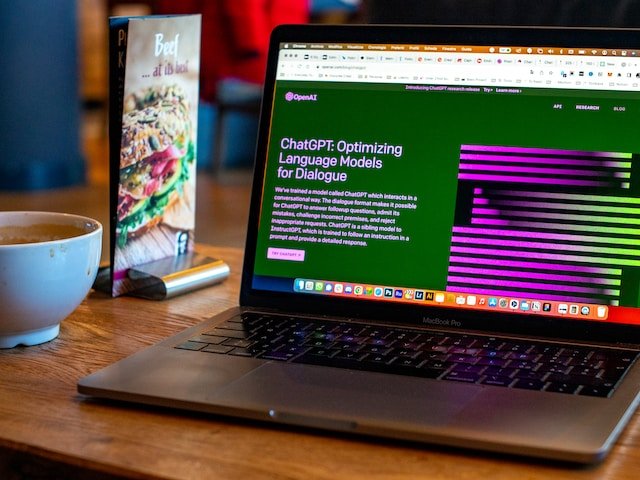Artificial Intelligence (AI) is transforming various industries around the world. From automating processes in manufacturing to personalizing user experiences in the tech sector, AI has reshaped the business landscape. Its foray into the world of creative writing, however, has sparked both admiration and concern. As the AI revolution continues to evolve, so too does its impact on the creative writing industry. Let’s delve into how AI is changing the way we create written content and what this means for the future.
Table of Contents
AI in Creative Writing: What’s Happening Now?AI in Creative Writing: An In-depth Examination
AI has been increasingly incorporated into the creative writing process. For example, AI tools like OpenAI’s GPT series have been utilized in a myriad of writing tasks, from writing articles and essays to creating scripts for films and television. These AI models use machine learning to ‘understand’ the nuances of language and then generate coherent and contextually appropriate text.
AI platforms are now capable of providing a plethora of suggestions, including alternative phrasing, stylistic choices, and grammatical corrections, to writers. As a result, they serve as valuable tools that can aid writers in overcoming writer’s block, editing content, and enhancing the overall quality of their work. AI can also be used to analyze vast amounts of text data, identifying trends and patterns that might otherwise go unnoticed by human authors.
However, it’s important to note that while AI is powerful, it still lacks the ability to truly understand human emotions, personal experiences, and subtleties that are often integral to the creative writing process. As of now, AI is best used as a supplement to human creativity, not a replacement.
As we delve deeper into the impact of AI on the creative writing landscape, we find a myriad of applications that showcase the power and potential of this transformative technology. From idea generation to language enhancement and even data analysis, AI is carving a unique space in the field.
Overcoming Writer’s Block
One of the most promising uses of AI in the creative writing process lies in its ability to generate ideas. For many writers, the biggest hurdle in their work isn’t the actual act of writing, but rather the process of brainstorming fresh, engaging content. AI platforms can provide writers with a vast array of ideas, thus helping overcome writer’s block.
AI systems, using Natural Language Generation (NLG) techniques, can generate a range of ideas based on inputted prompts, past works, or trending topics. This can prove incredibly helpful when a writer is stuck or simply looking for a fresh perspective.
Language Enhancement and Stylistic Choices
Another notable aspect of AI’s involvement in creative writing is language enhancement. Through machine learning algorithms, AI can suggest alternative phrases, correct grammatical errors, and offer stylistic choices. For instance, platforms like Grammarly and the Hemingway app can help writers improve their language, clarity, and sentence structure.
Moreover, AI can provide stylistic recommendations that align with a writer’s specific style or the style of a specific publication. By analyzing text data, AI can grasp patterns and suggest changes that enhance the consistency and coherence of a writer’s work.
Text Analysis and Reader Trends
AI’s prowess in dealing with large volumes of data also comes into play in the creative writing industry. By analyzing vast amounts of text data, AI can identify reader trends, popular topics, and even predict what content might resonate with audiences in the future.
For example, platforms like Wattpad use AI to analyze story trends among their vast user-generated content. This information is invaluable for writers looking to understand what themes, styles, or genres are currently popular among readers.
Creating Draft Content
In certain instances, AI has been utilized to create draft content. OpenAI’s GPT-3, for example, can generate coherent and contextually appropriate text. Writers can use this generated text as a starting point, saving time and energy that can be better spent refining and personalizing the work.
However, it’s important to remember that while AI can generate impressively human-like text, it doesn’t truly ‘understand’ what it’s writing in the same way a human does. Consequently, human intervention is crucial for adding depth, nuance, and emotional resonance.
The integration of AI into the creative writing process is transforming the way writers approach their craft. From idea generation to language enhancement, and from data analysis to draft creation, AI is proving to be an invaluable tool for modern writers. However, as we move forward, it’s essential to maintain a balanced perspective, recognizing that while AI can augment the writing process, it can’t replicate the unique human touch that lies at the heart of all truly impactful creative writing.

Photo by Emiliano Vittoriosi on Unsplash
The Potential Implications for the Future
The integration of AI into the creative writing industry poses both opportunities and challenges. Looking at the positive side, AI could democratize the field of writing. With AI tools, anyone, regardless of their skill level, could create well-crafted pieces, potentially opening doors for more people to express themselves through writing.
Additionally, the use of AI tools could greatly enhance productivity within the industry. Writers could utilize AI to speed up the editing process, generate ideas, and analyze reader trends, thus allowing them more time to focus on the elements of writing that truly require human touch and creativity.
However, the rise of AI in creative writing also raises several concerns. The most prominent among these is the potential devaluation of human writers. If AI can produce a compelling narrative in a fraction of the time it would take a human, what does this mean for professional writers and the value placed on their work? It’s a question that remains largely unanswered, but it’s a discussion that the industry needs to have as AI becomes more advanced.
Moreover, ethical considerations related to AI-generated content are also emerging. Questions about authorship, copyright, and authenticity come into play when a machine is creating content. There is a need for clear regulations and guidelines to address these concerns.
As the integration of AI into the creative writing industry continues to evolve, the potential implications for the future have become a topic of significant discussion. This shift is not without its opportunities and challenges, each of which carries potential ramifications for writers, publishers, and readers alike.
Democratization of Writing
One of the most exciting implications of AI’s involvement in creative writing is the democratization of the craft. By providing a tool that can enhance language and generate coherent text, AI can help level the playing field for aspiring writers. Those who struggle with language mechanics or idea generation can use AI as a crutch to improve their skills, opening the door for a wider array of voices and perspectives in the world of writing.
Productivity Enhancement
Another opportunity lies in productivity enhancement. By assisting with tasks like editing, idea generation, and trend analysis, AI can significantly reduce the time writers spend on these elements of the writing process. This allows writers to focus more on developing narratives, characters, and themes—the core aspects of creative writing that truly require a human touch.
Job Security and Devaluation of Human Writers
On the other hand, the rise of AI in creative writing also raises concerns about job security and the potential devaluation of human writers. If an AI can produce a compelling narrative in a fraction of the time it would take a human, what does this mean for professional writers? This concern could fundamentally shift how we perceive the value of human-created content and may have significant implications for the future of professional writing.
Ethical Considerations and Regulatory Challenges
The proliferation of AI in creative writing also introduces a host of ethical considerations and regulatory challenges. Who owns the copyright to an AI-generated story? Can AI-generated content be considered original or authentic? These questions will require new legal frameworks and guidelines to ensure that the benefits of AI in creative writing are reaped without compromising ethical and legal standards.
Navigating Cultural and Emotional Nuances
While AI has shown proficiency in generating coherent and contextually appropriate text, it still struggles with navigating the complex landscape of cultural and emotional nuances that are an integral part of human storytelling. In the future, if AI systems improve in understanding and representing these nuances, it could revolutionize the industry. However, it also raises questions about cultural appropriation and the homogenization of storytelling, which need to be carefully considered.
The integration of AI in creative writing is creating a future filled with both immense potential and intricate challenges. As we step further into this new era, it’s critical to foster an ongoing dialogue among writers, AI developers, and policymakers to ensure a future where technology and creativity coexist in harmony. The goal should be to utilize AI in a way that amplifies human creativity and diversity in storytelling rather than stifling it.

Photo by Lewis J Goetz on Unsplash
A Balanced Approach to the AI-Driven Future
As AI becomes more prevalent in the creative writing industry, it’s important to adopt a balanced approach. Rather than viewing AI as a threat, we should consider it as a tool that can enhance our creativity and productivity.
In the foreseeable future, the essence of creative writing – empathy, imagination, and human experiences – will still necessitate a human touch. AI might provide the brush, but it’s the human who paints the canvas with their own unique colours.
It is the responsibility of writers, educators, policymakers, and AI developers to ensure that the benefits of AI are maximized while its challenges are addressed. A collaborative approach could pave the way for a future where AI and human creativity coexist and complement each other in the creative writing industry.
In the end, AI’s role in creative writing is not to replace the human author but to serve as a tool that can augment human creativity. As we navigate through the digital age, the mantra should not be AI versus human writers, but rather AI with human writers, working in harmony to create a vibrant and diverse literary world.












